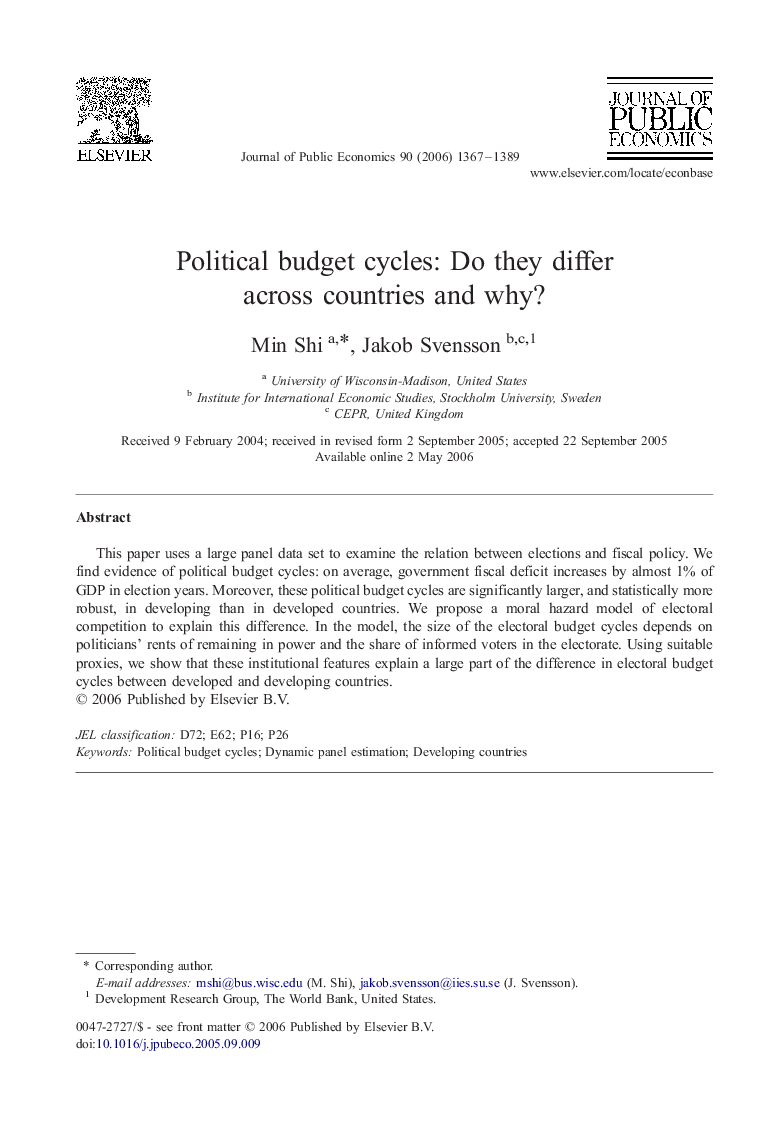| Article ID | Journal | Published Year | Pages | File Type |
|---|---|---|---|---|
| 970380 | Journal of Public Economics | 2006 | 23 Pages |
This paper uses a large panel data set to examine the relation between elections and fiscal policy. We find evidence of political budget cycles: on average, government fiscal deficit increases by almost 1% of GDP in election years. Moreover, these political budget cycles are significantly larger, and statistically more robust, in developing than in developed countries. We propose a moral hazard model of electoral competition to explain this difference. In the model, the size of the electoral budget cycles depends on politicians' rents of remaining in power and the share of informed voters in the electorate. Using suitable proxies, we show that these institutional features explain a large part of the difference in electoral budget cycles between developed and developing countries.
